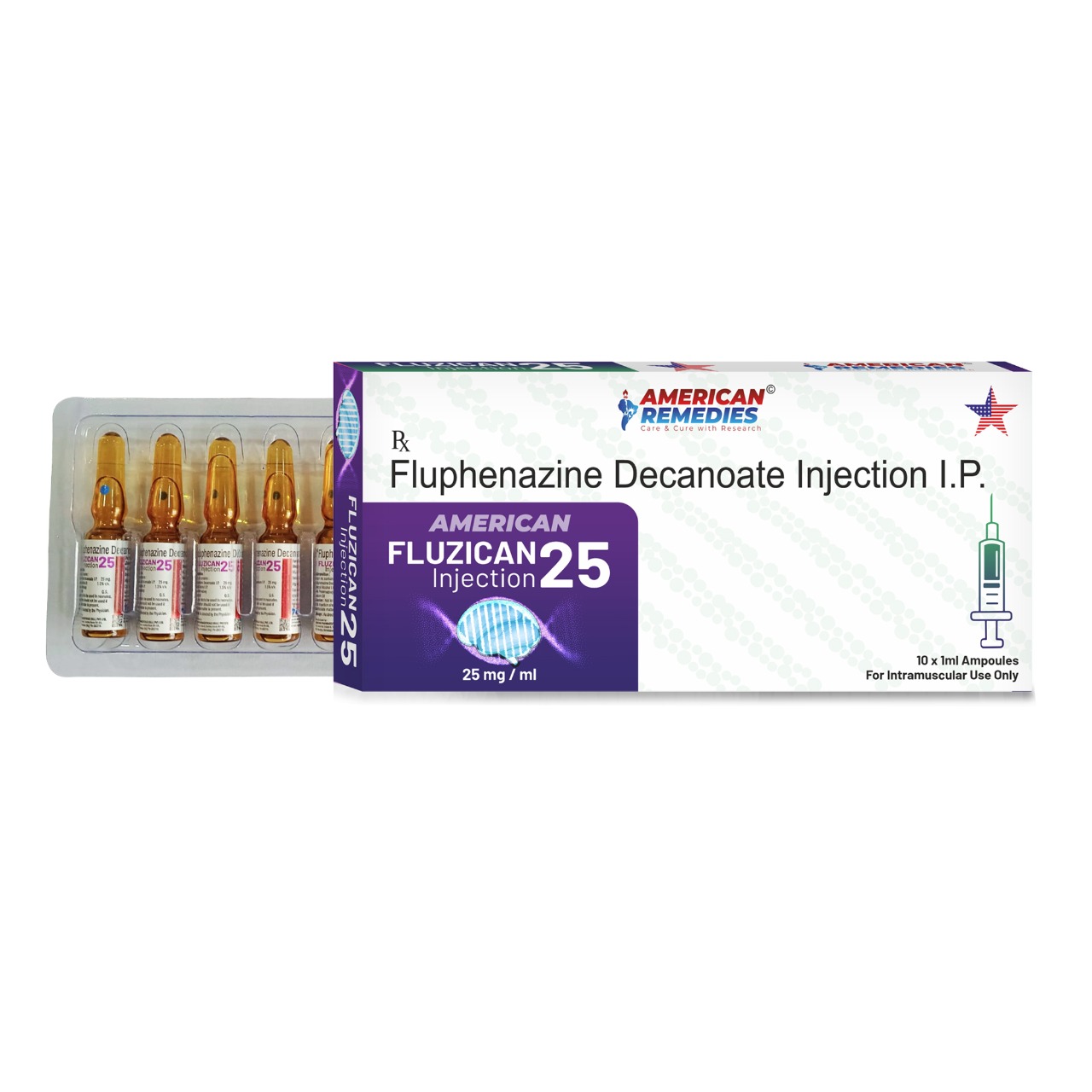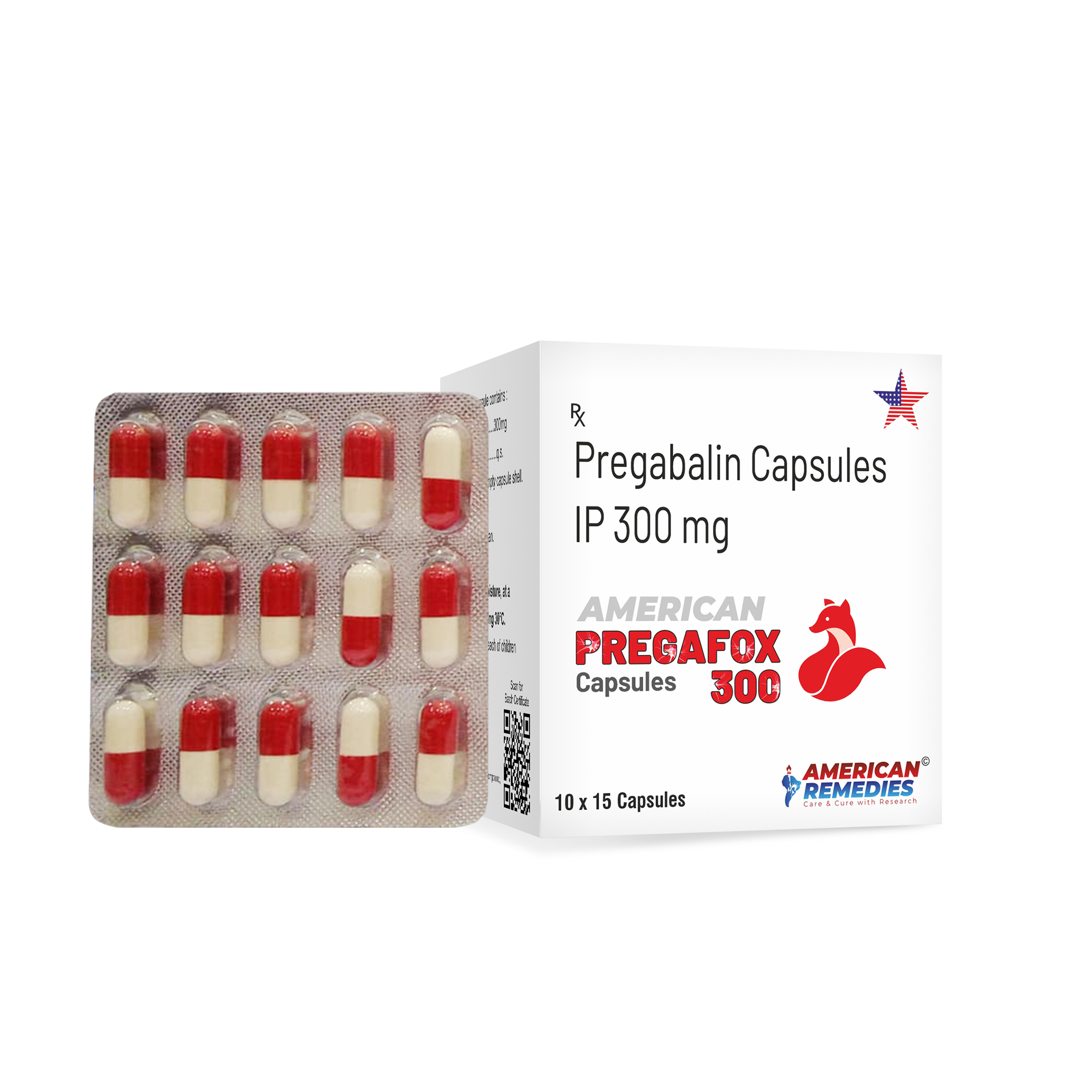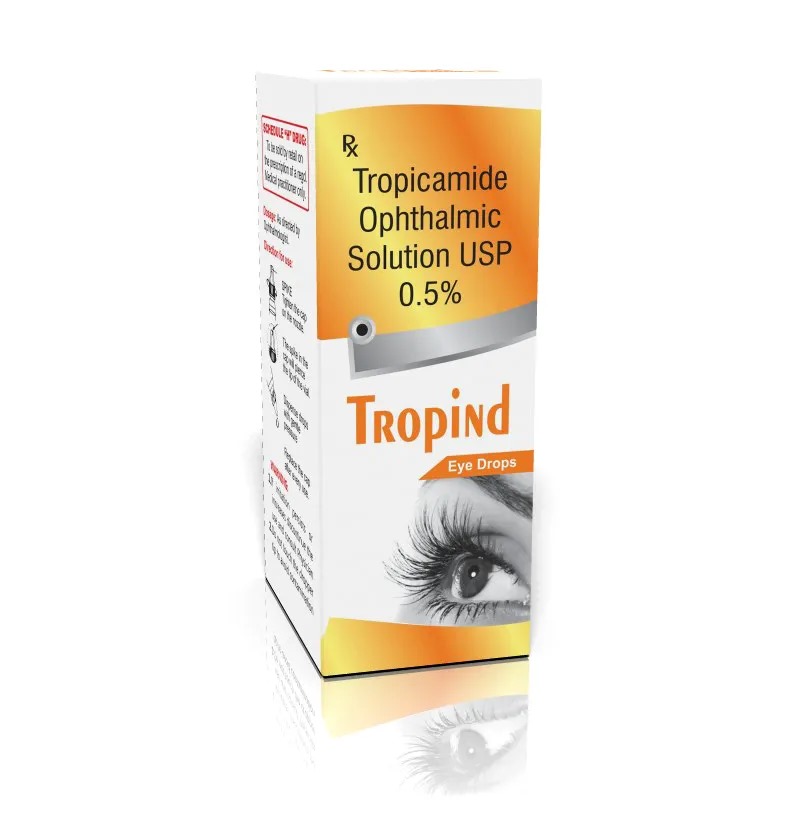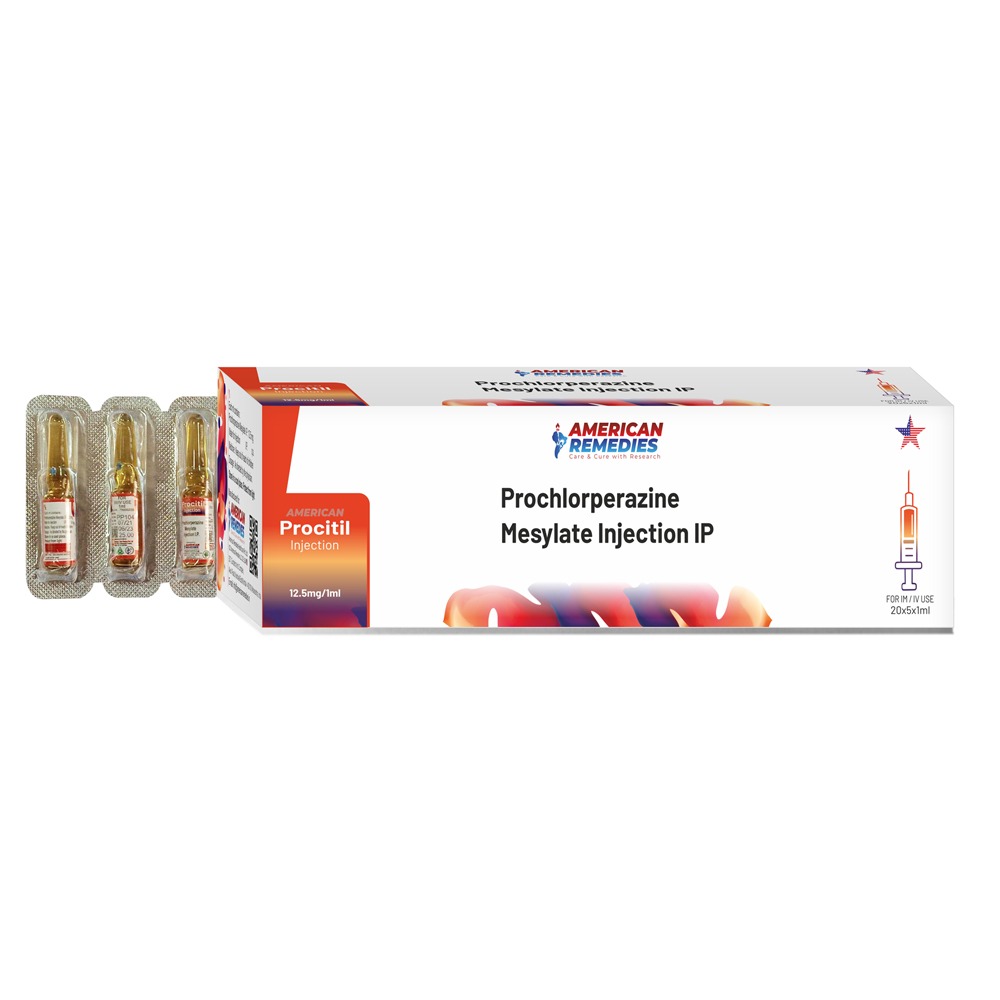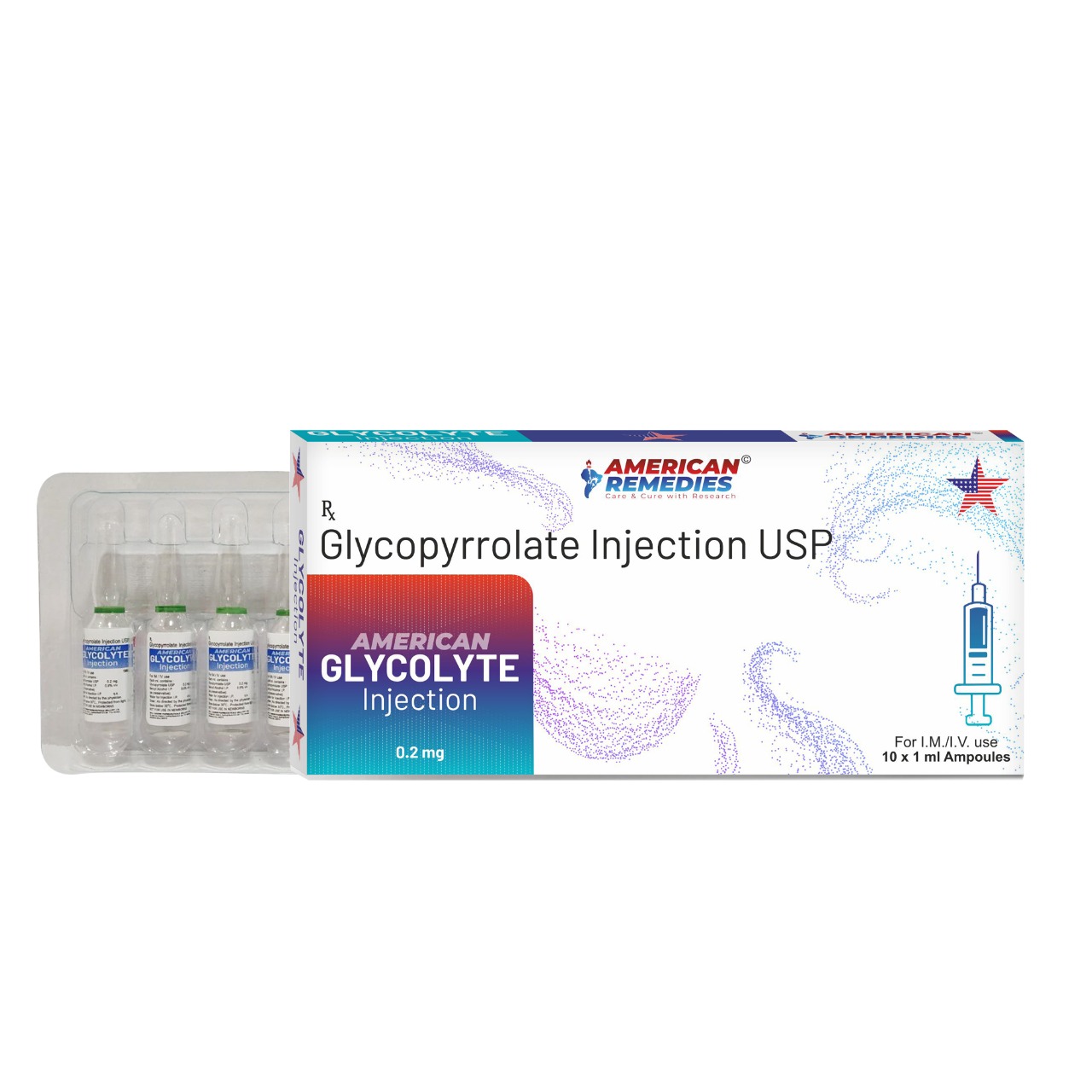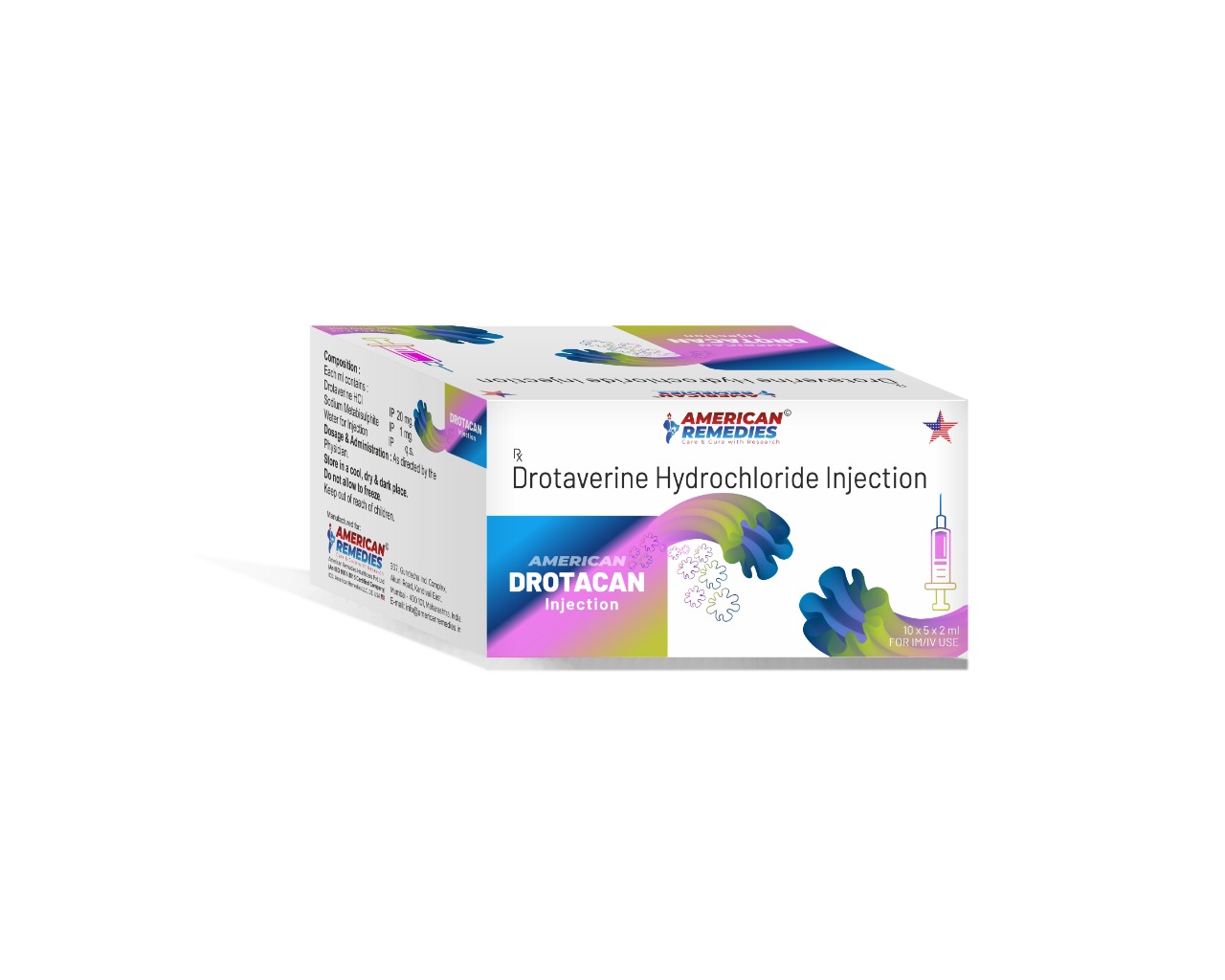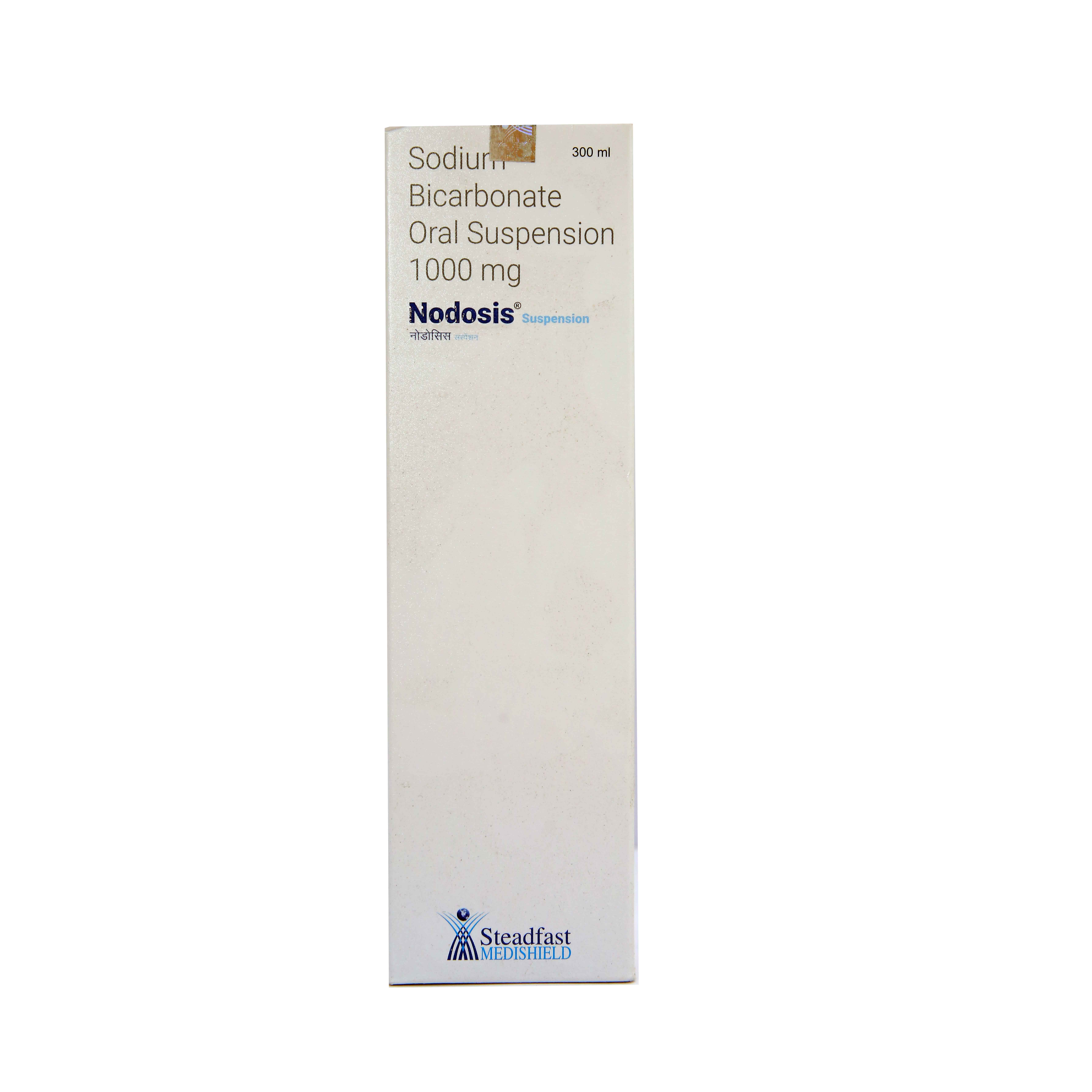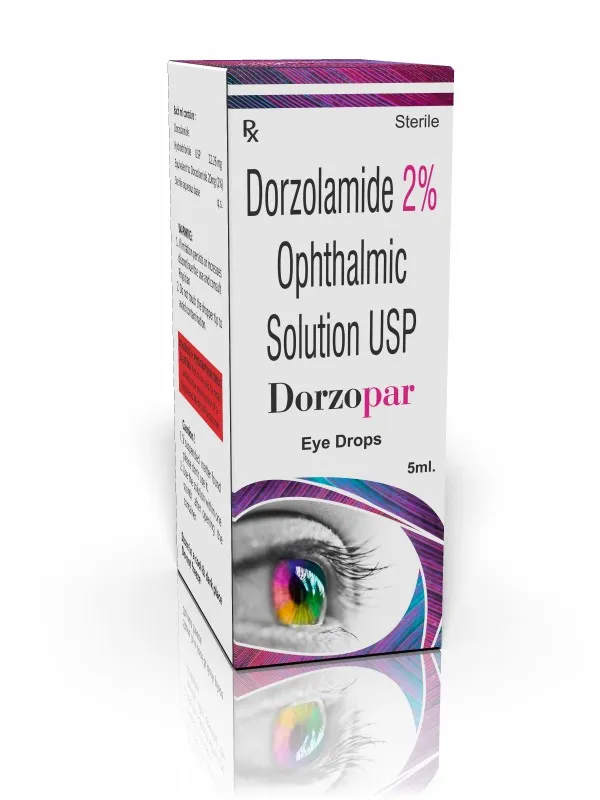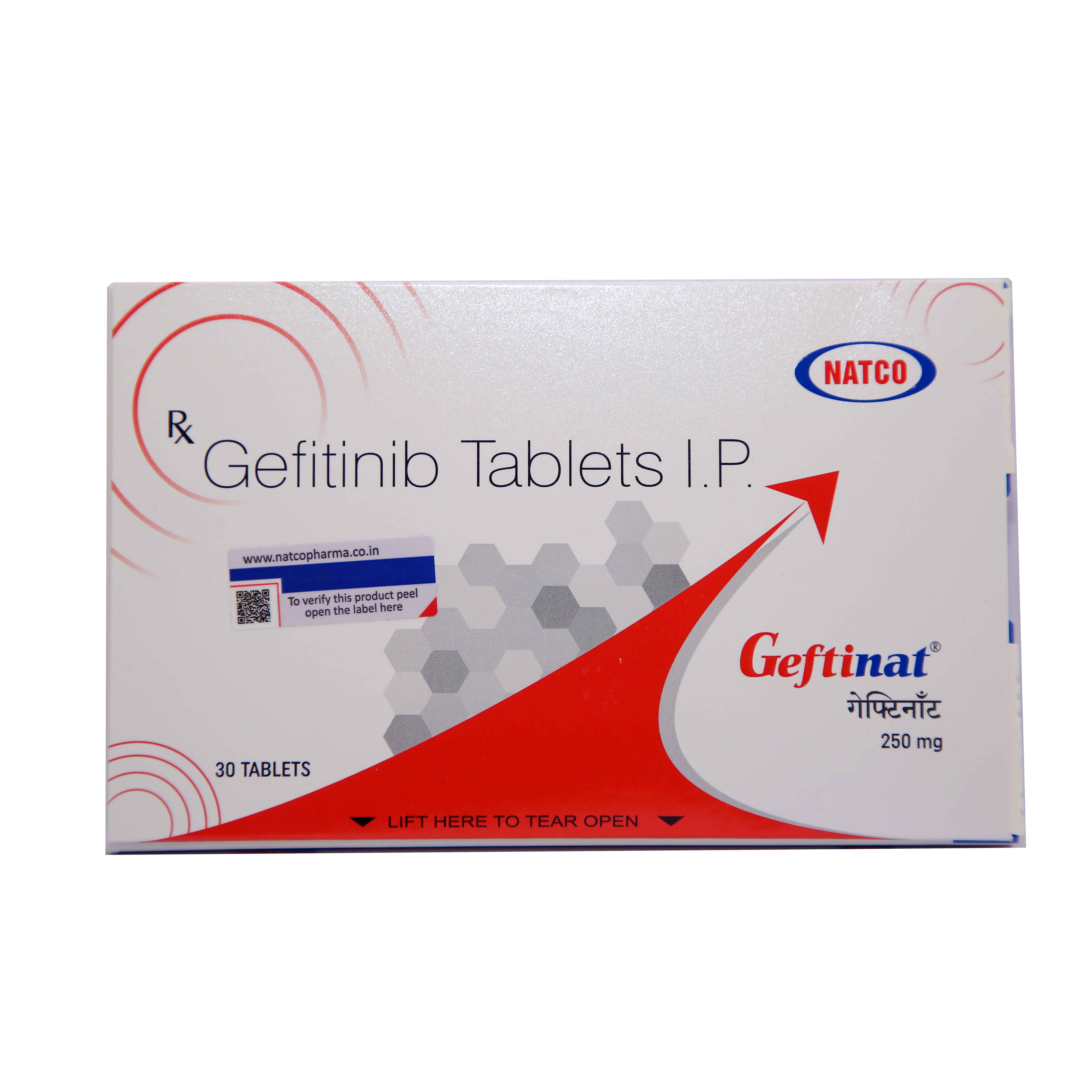Fluzican 25mg Injection is used in the treatment of schizophrenia. It may also be used to treat depression and bipolar disorder. It alters the thoughts and elevates the mood, improving the person’s ability to think, feel and behave. Fluzican 25mg Injection is given as an injection under the supervision of a healthcare professional and should not be self-administered. Take it at the same time each day as this helps to maintain a consistent level of medicine in the body. Take this medicine in the dose and duration as advised by your doctor and if you have missed a dose, take it as soon as you remember it. Do not skip any doses and finish the full course of treatment even if you feel better. This medication mustn't be stopped suddenly without talking to your doctor as it may worsen your symptoms. Some common side effects of this injection include dry mouth, abnormality of voluntary movements, urinary retention, constipation, and muscle rigidity. Initially, this medicine may cause a sudden drop in blood pressure when you change positions, rise slowly if you have been sitting or lying down. It may also cause dizziness and sleepiness, do not drive or do anything that requires mental focus until you know how this medicine affects you. This medicine can lead to weight gain, have a healthy balanced diet, and exercise regularly. You may also notice some injection site reactions such as pain, redness, or swelling. However, these are temporary and usually resolve on their own in some time. Please consult your doctor in case these do not subside or bother you.
Send Message